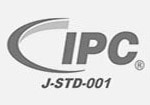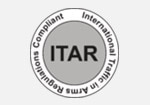PVC vs Teflon Insulated Wire
Leave a CommentWire insulation is essential for preventing electrical shorts between conductors. There are several types of wire insulations to choose from, and each material has different characteristics and advantages. This blog post will discuss the differences between PVC and Teflon wire insulation, as well as some of the most common applications of each type.
PVC Wire
PVC, or polyvinyl chloride, is a highly durable and versatile thermoplastic material that has several beneficial characteristics for wire insulation applications. For example, in addition to being moisture, flame, and abrasion-resistant, PVC functions optimally in temperatures ranging from -55 °C to 105 °C. It is also resistant to UV and many types of chemicals, including acids, oils, and alkalis.
PVC offers a less expensive material option for wire insulation. This makes it a popular choice for applications involving a large volume of wire or where cost is a significant consideration. It is the most readily available wire insulation material choice and provides a long service life, typically exceeding 25 to 30 years. PVC is also easy to process and recycle.
Teflon Insulated Wire
Teflon® is a registered trademark name for the material polytetrafluoroethylene (PTFE). This synthetic fluoropolymer is one of the most popular insulating compounds. PTFE can withstand extreme temperature fluctuations between -90 °C to 260 °C and is used in many challenging environments. It is also highly durable and exhibits excellent electrical properties.
In comparison to wires insulated through extrusion, PTFE insulated wire is tape-wrapped and therefore features a uniform thickness. For this reason, PTFE tends to be a higher-grade wire and is typically significantly more expensive than PVC insulated wire.
PVC vs Teflon Insulated Wire Applications
PVC and Teflon have many similar properties. Both materials are durable, flexible, and resistant to chemicals and UV light. However, their key differences cause them to be used in different applications. For example, while PVC can be used as both an insulation and jacketing material, Teflon is typically only used as insulation.
Applications for PVC wire insulation and cable jacketing include:
- Appliance wiring industry
- Communications industry
- Medical industry
- OEM applications
- Oil and gas industry
Teflon insulation wire offers a reliable insulation solution for applications such as:
- Aerospace industry
- Coaxial communications
- Military and defense industry
- OEM appliance wiring
- Oil and gas industry
Electro-Prep Meets All Your Wire and Cable Needs
Choosing the best type of wire insulation is an important way to ensure your assembly functions optimally and delivers a long service life. PVC and Teflon are two popular materials for wire insulation applications, and choosing which one to use depends on factors such as the environment your assembly will be used in, your budget, and more.
Electro-Prep has over 40 years of experience delivering reliable wire harnesses and cable assemblies. We can help you select the best insulation material and achieve an assembly that meets even the most rigorous demands. To learn more about our services, contact us today. When you’re ready to get started on your customized solution, request a quote.






